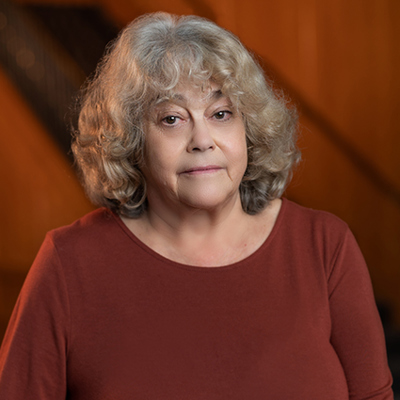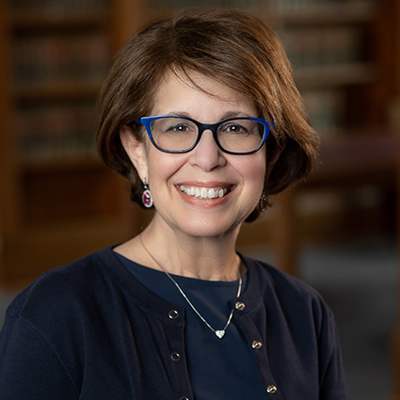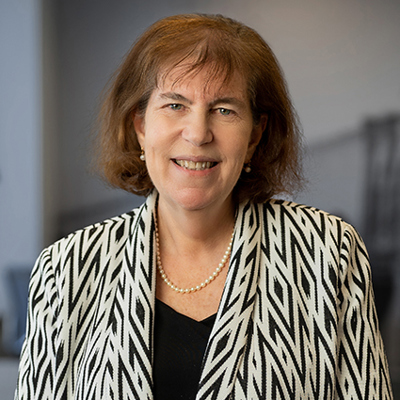With Gratitude, Brooklyn Law School Bids Farewell to Four Esteemed Professors
Four of our esteemed professors have announced that they will retire from Brooklyn Law School this May:
- Neil B. Cohen, Jeffrey D. Forchelli Professor of Law (who will retire from teaching but will assume the role at the Law School of “1901 Distinguished Research Professor of Law”)
- Elizabeth Fajans, Professor of Legal Writing
- Carrie Teitcher, Professor and Acting Director of the Legal Writing Program
- Janet Sinder, Director of the Library and Professor of Law
As innovators, scholars, teachers, and colleagues, they have all made an enormous impact on our Law School community. Here we highlight their individual careers as we wish them well in their next endeavors.





Professor Neil B. Cohen, Expert in Domestic and International Law Reform, to Retire
In 1985, when Neil B. Cohen, currently the Jeffrey D. Forchelli Professor of Law, arrived at Brooklyn Law School, it was as a semester-long visiting professor while on a leave of absence from Seton Hall, where he had been teaching for six years and planned to return. But he enjoyed what he experienced at Brooklyn, and Dean David Trager invited and encouraged Cohen to join the faculty permanently. “I’m like the character in the old movie The Man Who Came to Dinner,” said Cohen with a laugh, “I came for one semester and stayed for 37 years.” As he announces his retirement from teaching, Cohen will continue his scholarship and law reform activities and assume the role at the Law School of “1901 Distinguished Research Professor of Law.”
Beginning his career in practice at a Boston firm, after having gained his B.Sc. at MIT and his J.D. from New York University School of Law, Cohen says that even then he knew he wanted to teach law one day. Since joining the Law School faculty — at the time, as its youngest member — he has, over the years, had a significant impact not only on his students and colleagues, teaching domestic and international commercial law, contracts, and conflict of laws (and, earlier in his career, constitutional law and corporate law), but also as a scholar and key participant in major domestic and international law-reform projects addressing commercial transactions. In recognition of his accomplishments, in 2014 Professor Cohen received both the American Law Institute’s John Minor Wisdom Award and the Homer Kripke Lifetime Achievement Award of the American College of Commercial Finance Lawyers. In addition to his scholarship in contract and commercial law, Cohen has written numerous law review articles in areas as diverse as bankruptcy, medical malpractice, probability and statistics, and even concerning the parallels between the development of the rules of baseball and the rules of law. (As an Ohio native, he has been a lifelong fan of the team now known as the Cleveland Guardians.)
An important early endeavor in Cohen’s work was his service as the Reporter for the American Law Institute’s (ALI) Restatement of the Law of Suretyship and Guaranty (1996). In honor of his accomplishments as Reporter for the Restatement, he was named as the Institute’s R. Ammi Cutter Reporter. “Suretyship and guaranty are very important areas of commercial law, but at the time many lawyers and judges did not understand them well, leading to an unfortunate amount of commercial uncertainty,” Cohen said. “When the ALI asked me to undertake this project, I discovered that the most recent treatise in the area had been published before I was born, so the lack of a current source of legal rules was a major factor in that uncertainty and the litigation that resulted from it. I spent over five years on the Restatement project, in addition to my teaching. The publication of the Restatement, I’ve been told by people who practice in the area, is a major reason that there is so much less litigation in the field now. Now there is a coherent source of law that lawyers can consult to understand the rules and the practices in the area.” His work with the Restatement, in addition to that of his fellow ALI Cutter Reporter, Professor Aaron Twerski, who was co-reporter for the Products Liability portion of the Restatement of Torts, also increased the visibility of the Law School on a national stage.
Professor Cohen’s work on the Restatement led to his appointment to a number of roles in the modernization of commercial law. He was the Reporter for Revised Article 1 of the Uniform Commercial Code and has served on the Drafting Committees for a host of major revisions to other articles of the Code. For over two decades, he has served as the Director of Research of the Permanent Editorial Board for the Uniform Commercial Code. In addition, he has also served as an adviser for several ALI projects, including Principles of the Law of Software Contracts and the Restatement of the Law of Conflict of Laws.
Professor Cohen’s activities in the modernization and harmonization of commercial law have extended to the international arena as well, including service as a member of the United States delegation to the United Nations Commission on International Trade Law (UNCITRAL). “One of the things I’m proud of,” said Cohen, “is the work I have done with UNCITRAL, contributing to law reform around the world that can make it easier for businesses to get credit at lower cost. Greater availability of credit at lower cost is an important tool for economic development, especially for MSMEs (Micro-, Small-, and Medium-Size Enterprises), which are the backbone of many economies. Availability of credit can help them expand, hire more workers, and raise standards of living.”
Professor Cohen has also served on a number of working groups of the International Institute for the Unification of Private Law (Unidroit) in its development of principles for international commercial contracts, and in more specialized projects offering nations models for law reform that can increase access to credit. He was also a member of the working group of the Hague Conference on Private International Law that recently produced an influential set of Principles to govern choice of law in international commercial contracts. Finally, since 2009, he has been a member of the United States Department of State’s Advisory Committee on Private International Law.
This long experience on the stage of domestic and international law reform, say colleagues, dovetails perfectly with Cohen’s qualities as an exceptional teacher, scholar, and negotiator. “It has been a privilege to watch Neil in action during various commercial law reform efforts,” said Professor Ted Janger. “His ability to find common ground among the players and to reduce that to text is unmatched.” Dean Michael Cahill said, “Neil sees so broadly and deeply, always managing to have a thoughtful perspective on any issue and in any interaction, from internal faculty policies to his understanding of the law and his engagement in serious law reform, nationally and globally. He is thorough and circumspect, a delight as a colleague, and has been an insightful counselor for administrators of the Law School for decades.” Said Cohen, “In much of my work, I see one of my goals as trying to find common ground among people who express differing views but may be trying to accomplish the same thing. In the international work that I’m lucky to do, it’s often a very diplomatic process, in all senses of the word. There’s much more ability to help things move in a positive direction if you can get past what are often superficial differences among people’s expressed views to see that they’re really trying to achieve a common goal.”
Seeing those commonalities has also created a wide range of relationships with his Brooklyn Law colleagues. “There are such good people here,” Cohen said. “I’ve always been lucky that in my subject area I’ve had people to talk with, bounce ideas off, and debate with. We learn from each other. And I’m also lucky to have such interesting people I get along with on the faculty who aren’t in my area. We’ll start talking and find we’re each learning something from one another and gaining a new perspective. It makes us better in the work we do in our own fields.”

Professor Elizabeth Fajans, a Leading Scholar in the Legal Writing Field
In 1983 when Betsy Fajans joined the Brooklyn Law School faculty as a writing specialist working with individual students to hone their skills, legal writing was a nascent field, with only a few existing law school writing programs and, other than a handful of books for paralegals, no useful textbooks. Fajans, who had obtained her Ph.D. at Rutgers and had been teaching English composition and literature there and at Fairleigh Dickenson University, was also new to the field. “I’m not an attorney,” she said, “so early on, I learned a lot through osmosis, being in the law school environment and collaborating with my lawyer colleagues.” With those colleagues, Professor Carrie Teitcher and the late Professors Marilyn Walter, Mollie Falk, and Eve Cary, and with Linda Feldman ’83 as director of academic support, the program was built from the ground up.
Professors Fajans and Falk launched the Fundamentals of Legal Drafting class as co-teachers. Then, in 1989, with Professor Walter and Northwestern University’s Helene S. Shapo, Fajans authored the standard-setting Writing and Analysis in the Law, now in its seventh edition. With Falk and Shapo, she authored Writing for Law Practice (2004), now in its third edition, and with Falk, in 1995, she wrote the textbook Scholarly Writing for Law Students, which has become a classic and is now in its fifth edition. “When we’re trying to explain to students how to go about the process of doing an analytic or scholarly piece of legal writing,” said Professor Ted Janger, “there’s a chapter in this book that does the best job of anything I’ve ever read at describing the organic process of figuring out what you’re trying to say. I make my students read it because it explains how you get from ‘I’m learning about something’ to ‘I’m saying something.’”
“Along with Marilyn Walter and Mollie Falk,” said Dean Michael Cahill, “Betsy became a national scholarly presence for thinking about, and helping others understand how to engage in, legal writing.”
Fajans’s many scholarly articles focused on rhetoric and the law include several with Falk, ranging from “Against the Tyranny of Paraphrase: Talking Back to Texts,” in the Cornell Law Review, the first call for critical reading pedagogy in law school, to “Hendiadys & Legal Interpretation: What Part of ‘And’ Don’t You Understand?,” 17 Legal Communication & Rhetoric: JALWD 39 (2020).
Fajans was also at the forefront in developing the nonprofit Legal Writing Institute, an association of legal writing teachers. “We became a community and branched out to advance the field,” Fajans said. “Although we wanted to engage in scholarship and publish, many journals were reluctant to publish the work of writing professors, so we formed our own newsletter and journal; we provided our own research grants and teaching grants. Now there are 2,000 members nationally and internationally.” Fajans was Editor-in-Chief of the LWI monograph series, has been on the organization’s board, and has served on the editorial board of its Journal of Legal Writing. “One of the other writing specialists said to me, ‘We’re the mothers of the field and now the grandmothers.’”
Professor Fajans is also a representative to the Association of Legal Writing Directors, an Edward V. Sparer Public Interest Law Fellowship Committee Member, and is affiliated with the Center for Law, Language & Cognition. In 2010, Fajans was the recipient of the AALS Section Award from the Section on Legal Writing, Reasoning, and Research for significant lifetime contributions to the field. “Betsy is an icon in legal writing,” says Acting Director of the Legal Writing Program Carrie Teitcher. “I’m so grateful for her support, guidance, mentorship, and leadership.”
With all she has accomplished, says Fajans, it’s the work the legal writing team has done with students that is perhaps most important: “There is a great variety of students that a writing specialist gets exposed to—those with English as a second language, those who are born in the U.S. but in insular communities, those with learning disabilities, and those who majored in fields that required little expository writing. One of the things I was most proud of,” she says, “is receiving an email from a student I had worked closely with. She had dyslexia and said no one had ever tried to teach her this way. She worked very hard and went on to receive a Golden Pen award from her law firm.”
The program that Fajans and her colleagues began, she says, “has changed radically in recent years, nationally and here at the Law School. We just kept growing, and there is no school today that doesn’t have a legal writing and research program.”

Professor Carrie Teitcher ’81, a Champion for Creative Student Support in the Legal Writing Program
Carrie Teitcher has called the past year in the legal writing program “the year of the student,” for the fine-tuning the program has conducted to support student needs during an unprecedented time. But you might say that for Teitcher—who, since joining the Law School in 1984, has developed and taught writing and research classes, and more recently has been an advocate for international students in their pursuit of an LL.M.—every year is the year of the student.
Her distinguished career at the Law School’s Legal Writing Program culminated with Teitcher being named Acting Director of the Legal Writing and Research Program for 2021-2022, during Director Heidi Brown’s sabbatical year. “It was my utmost pleasure to have Carrie serve as Acting Director, honoring her tremendous career and nearly four decades of service as a professor at Brooklyn Law School,” said Brown. “Her imprint on our program is eternal.” Teitcher said the pleasure is equally hers: “I love my students. Watching them grow and develop as legal writers and analytical thinkers is so rewarding. I am so grateful to Heidi Brown for giving me the opportunity to lead the program during her sabbatical year. Being acting director has been the highlight and joy of my career.”
It has also, Teitcher said, brought her full circle as a Brooklynite. Born and raised in Bensonhurst, she received her B.A. from Brooklyn College and, in 1981, her J.D. from Brooklyn Law School. She began her career in practice as an associate with the firm of Stroock & Stroock & Lavan. “I always enjoyed working collaboratively and I found that I was drawn to teaching. On a whim, I reached out to Prof. Marilyn Walter, the founding director of the Legal Writing Program. As luck would have it, there was a need to fill, and Marilyn hired me. I owe Marilyn my career, and I will always be grateful for her guidance and mentorship. She was a legal writing giant.
“Over the years, I was so fortunate to work with so many accomplished women who inspired and mentored me. First among them is Betsy, a legal writing icon and scholar who taught me more than she will ever know. Eve Cary and Mollie Falk, my legal writing colleagues for many years, inspired me with their brilliance, grace, and wicked senses of humor. Gone too soon, I like to think of Marilyn, Eve, and Mollie as angels at my back, guiding me to this day. And you can’t talk about the legal writing program without also talking about our former Director of Academic Success, Linda Feldman: colleague, mentor, and friend. Lastly, I am so grateful for my present colleagues who teach me how to be better each day. I am truly grateful for and proud of my 38-year relationship with the legal writing program at BLS.”
In addition to teaching Fundamentals of Legal Drafting and Legal Research and Writing, Teitcher has since 2013 been Legal Writing Coordinator for the LL.M. Program, where she has created writing courses and workshops geared specifically to the needs of international students, who are already lawyers in their home countries. “I jumped at the chance to get the LL.M. legal writing program off the ground,” Teitcher said. “I’m the daughter of Holocaust survivors, and I empathize deeply with students of other cultures who are adapting.” She has presented at the Global Legal Skills Conferences in Melbourne, Australia (“Bridging the Cultural Divide: Empowering LL.M. Students to Embrace their Differences to Become Expert Communicators”), Verona, Italy (“Advanced Communication Skills for International Lawyers”), and Chicago (“An Integrated Approach to Teaching Legal Research and Writing to Foreign-Trained Lawyers”). “We’ve really invested in LL.M. students getting comprehensive training and legal writing skills,” said Dean Michael Cahill. “Carrie has spearheaded that effort, and the students as well as the institution generally have benefitted from her thoughtfulness in putting together the program.”
Professor Teitcher’s scholarship has also addressed the need to improve the standards for LL.M. programs for international lawyers. With Professor and co-teacher Kathleen Darvil, she published “Towards a More Ethical LL.M. Degree: Let’s Give International Lawyers the Value They Deserve,” 31 Florida Journal of International Law 55 (2019).
An advocate for continuing to adopt the latest technology in both doctrinal and skills courses, Teitcher has also played a key role in imagining new ways, such as building on the recently adopted Canvas platform, to create an even more robust legal writing program. She has also chaired the Professional Development and Computer Technology Committees, advocating for the innovative adoption of technology in the classroom. “Carrie has been one of the stalwarts of the program, a steady hand, and a great mentor,” said Cahill. “She has always been there to ensure, and embody, the right balance of continuity and change.”

Professor Janet Sinder, Innovator and Promoter of Faculty Scholarship, to Retire as Director of the Library
Since joining the Brooklyn Law School faculty in 2012 as a professor and as Director of Library, Janet Sinder has overseen a significant transition of library resources from print to online. As she announces her retirement in 2022, the Law School community recognizes the lasting impact her leadership has made on the intellectual life of the school. “During a period of dramatic change in how we access, store, and archive material, Janet has always been on top of that change and has kept the law school evolving and improving,” said Dean Michael Cahill. “Among law librarians, she is one of the country’s recognized figures and leading innovators.”
With a keen understanding of the intersection of library services and information technology, Sinder has guided the library collection’s transition away from print materials to electronic resources, including the addition of a significant number of e-books, while continuing to acquire important print works. “Janet has been an outstanding manager of library resources and budgets, and has guided her staff admirably through a time of technological upheaval, financial challenge, and of course the personal and professional stress arising from the pandemic,” said Cahill. “We’ve had to make hard decisions,” Sinder said. “We consult faculty, look at statistics, and take some risks. We strive to address the needs of current users while always thinking about our responsibility to the future.”
Promoting the dissemination of faculty scholarship and the law school’s academic journals through our open-access digital repository, BrooklynWorks, has also been a key focus of Sinder’s work. “Janet has been an incredibly helpful and thoughtful leader and steward of faculty scholarship, maintaining and promoting faculty works,” said Cahill. Adds Professor Ted Janger, "Janet and I have worked together on the Publications Committee. She is spectacular at what she does. She’s a wonderful administrator and is great at facilitating and supporting research."
Sinder has also played a significant part in improving the library’s physical facilities. “I’ve been proud of working with the administration and supporters in creating spaces like the Phyllis & Bernard Nash ‘66 Reading Room and the Sam Bernsen ’49 and Elizabeth Bernsen Reference and Reading Room that are welcoming to, and tremendously popular with, our students,” she said.
An active member of the American Association of Law Libraries (AALL), Sinder served as the editor of Law Library Journal, the association’s official journal, from 2007 to 2013. She was awarded the organization’s 2014 Frederick Charles Hicks Award for Outstanding Contributions to Academic Law Librarianship. She also has contributed award-winning scholarship to the field. Among Sinder’s contributions, her article “Correcting the Record: Law Journals and Scholarly Integrity in the Digital Age,” won the 2020 top prize in the AALL/LexisNexis Call for Papers in the open category; and “The Effects of Demand-Driven Acquisitions on Law Library Collection Development,” in which she discusses the evolution of library collection, was named the 2017 Law Library Journal Article of the Year.
After receiving her J.D. from the University of Michigan Law School, Sinder began her legal career as an Assistant Defender at the Office of the State Appellate Defender in Springfield, Illinois. Yet after six years of practice, she said, her interests turned to legal research and scholarship: “I found I liked helping people figure out ways to approach what they were working on. Librarianship seemed like an interesting path.” So she went on to get her M.S. in Library and Information Science from the University of Illinois at Urbana-Champaign and has thrived in the work. Before joining Brooklyn Law School, she served at the law libraries of Duke University and the University of Maryland and worked for several years as the information specialist at the GSM Association in Dublin, Ireland.
“At Brooklyn, the library staff has been fantastic, incredibly adaptable to change, and willing to do whatever is needed to provide students and faculty with new services. The faculty has been easy to collaborate with, appreciative, and very supportive,” Sinder said. “I’ve loved the work.”